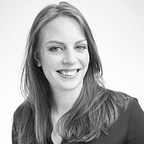Our Autistic Expression: Language
The first of “Our Autistic Expression”, a series intended to inform interested parties about our observations and experiences. Rather than a sweepingly broad brush of neurodivergent averages (an oxymoronic idea), we wish to present very particular, brief, unique-to-us-yet-hopefully-relatable vignettes. We write to the curious, the empathetic, and the open-minded, regardless of where and if on the spectrum they identify.
Climb the aged ladder to the attic of my mind. Pull the lone chain attached to a singular, incandescent bulb. Squint for a dim, noncomprehensive view of whatever thoughts are nearest the doorway. — Sunshine & the Scientist
400 Words on Verbosity
Sunshine’s View
I have always been labeled as highly verbal, aka talkative, chatty, too chatty, the arbiter of big words, the little professor from the earliest age, the know-it-all, the curious questioner. Even before I could talk, I mimicked basic sign language learned from children’s television to communicate with my parents. Then, I absorbed language with an unquenchable thirst, reading at a higher grade level than my peers by a factor of two. In my school years, teachers remarked simultaneously how proud they were of my talkative nature and my incredible vocabulary, and how disappointed they were of my inability to sit quietly or be challenged by the assignments and activities they presented.
For most people, a few minutes’ conversation is usually enough for even the least discerning individuals to notice that I’m…something. My partner has much the same effect. He often gets called a genius, brilliant, wonderous, which are all likely accurate. I, in comparison, am mistakenly labeled as conniving, manipulative, or domineering –all code for smart lady in a patriarchal society. In my view, the assumptions about my partner and I are not based on the content of our conversations, but rather our specificity of words, our lengthy speech patterning, and our penchant for being able to cite facts and figures, dates and names, with relative ease and accuracy. We also, unlike many we meet, will typically identify when we know we don’t know.
Because of the speed at which I process language, and the adoring deliberateness with which I communicate, I am full of puns, jokes, call-backs, accents, regional dialects, song lyrics, doubly- and triply-layered innuendo, and metacognitive observations. I may move too fast to be followed, making fewer connections aloud than I realize. My jokes fall flat for the uninitiated. My references seem scattered and my intentions mysterious. For other neurodivergent folk, I am a gem, if a bit overwhelming. For the non-divergent, I am a pariah, a handful, a witch, or an existential threat.
I am fortunate to have found my partner, who can follow and extend the conversation with unmatched precision. We can chat for hours and our attics are endlessly vaulted, a bit dusty, infrequently accessed, and jam-packed with interesting anecdotes and artifacts. We both developed with an intense passion for learning and for communicating, and it bonds us in the ways it sets us apart from others.
To the little professors, past and present, I see you.
About the Series
I am neurodivergent. Neurodivergent is more appropriate terminology than autistic, a term which derives from the Greek word autos meaning self, a term intended to imply isolation from social interaction. While the definition of autism has expanded over time, I feel it is more flawed and divisive than not (as labels typically are). While I do still refer to myself as autistic on occasion, I’m much more likely to label my notable traits as autistic, as in “this skill or tendency sets me apart”, and to describe myself generally as divergent. My partner, also neurodivergent, feels similarly.
We were both diagnosed later in life, in our mid-late 20s, after running the gauntlet of other health and human service concerns and crossing the eventual “must be autism if it isn’t these other things” finish line. I wouldn’t wish either of our journeys toward diagnosis for anyone, years rife with stress, mislabeling, depression, psychosis, serious medical ailments, and general social othering. The medical and psychiatric communities have already begun to recognize neurodivergence earlier, and with more sincere gender blindness, to provide individuals with the tools, resources, and assistance they require. To “make it” in our society as a person who fall many standard deviations outside the expected average on related scales relies on an individualized approach to education and healthcare. (A much larger conversation for another day.)
Sincerely,
Sunshine
of www.sunshineandthescientist.com
Creator of Kid Lit Motivates and educational and therapeutic resources, downloadable on TpT
Author of Maddie Steiner, Fashion Designer (and, with support, future picture books)
